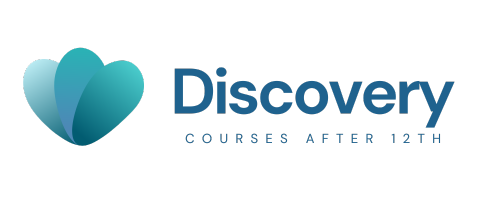The Best Medical Courses After 12th for Science, Non-Medical

After completing 12th grade, students from both Science and Non-Medical streams have a plethora of opportunities to pursue rewarding careers in the healthcare sector. Medical Courses After 12th offer diverse pathways for aspiring healthcare professionals to make a significant impact in patient care and the medical field. From traditional MBBS and BDS to specialized courses like B.Sc. in Biotechnology, B.Sc. in Genetics, and B.Sc. in Nutrition and Dietetics, these courses cater to the diverse interests of students. With a focus on advanced medical knowledge, practical training, and industry-relevant skills, these courses prepare students for a fulfilling journey in the healthcare industry. Whether it’s diagnosing, treating, researching, or supporting medical services, the best medical courses after 12th offer a plethora of opportunities for students to excel and contribute to the well-being of society.
The Best Medical Courses After 12th for Computer Science Students
Medical courses after 12th offer an exciting opportunity for students from a computer science background to combine their passion for technology with the field of healthcare. With the rapid integration of technology in the healthcare industry, there is a growing demand for professionals who can bridge the gap between these two fields. In this overview, we will explore the medical courses available for students with a background in computer science and the unique role they can play in shaping the future of healthcare.
Medical Courses After 12th for Computer Science Students:-
| Courses | Overview |
| Medical Informatics | Medical informatics focuses on the use of information technology to manage and analyze healthcare data, improve patient care, and enhance healthcare systems. |
| Bioinformatics | Bioinformatics involves the application of computer science and statistical techniques to analyze and interpret biological data, making it valuable in areas like genomics and drug development. |
| Health Information Management | This course focuses on managing and securing electronic health records (EHRs) and other health-related information systems. |
| Biomedical Engineering | Biomedical engineering integrates principles of computer science and engineering to design and develop medical devices and equipment. |
| Medical Imaging Technology | Learn about medical imaging techniques and technologies, such as X-ray, MRI, CT scans, and ultrasound, and their applications in diagnostics and patient care. |
| Medical Data Analytics | Medical data analytics uses computational methods to analyze and derive insights from large volumes of medical data, facilitating evidence-based decision-making in healthcare. |
| Telemedicine and Healthcare Technology | This course explores the use of technology to deliver healthcare remotely, connecting patients and medical professionals through digital platforms. |
| Health Mobile App Development | With the increasing popularity of health and fitness apps, this course focuses on developing mobile applications for medical purposes. |
Computer Science students venturing into these medical courses can leverage their programming and technology skills to contribute significantly to the healthcare industry’s advancements. These courses combine the best of both worlds, opening doors to exciting and rewarding careers at the intersection of technology and medicine.
How to Prepare for Medical Courses After 12th Without Biology
Preparing for medical courses after 12th without Biology requires careful planning and dedication. While some medical courses may not have Biology as a mandatory subject, it is essential to be well-prepared in other areas relevant to the chosen course. Here are some tips on how to prepare:
1. Identify the Course: Start by researching and identifying the specific medical course you wish to pursue. Understand its eligibility criteria and the subjects that are required or recommended for admission.
2. Strengthen Related Subjects: Since you don’t have Biology, focus on strengthening other relevant subjects like Chemistry and Physics, which are often important for medical courses.
3. Enroll in Preparatory Courses: Consider enrolling in preparatory courses or coaching classes that cater to the specific medical course you plan to pursue. These courses can help you bridge any knowledge gaps and prepare you for the entrance exams or interviews.
4. Study Online Resources: Utilize online resources, textbooks, and study guides to supplement your learning in the areas that are essential for the course you wish to pursue.
5. Practical Experience: Gain practical experience through internships or volunteer work in healthcare-related fields. This hands-on experience can enhance your understanding of the medical profession and strengthen your application.
6. Stay Updated: Keep yourself updated with the latest developments and trends in the medical field. This will demonstrate your interest and commitment during interviews or admission processes.
7. Time Management: Create a study schedule to manage your time efficiently. Balancing your academic studies with preparation for the medical course can be challenging, so staying organized is essential.
8. Mock Tests: Practice mock tests and past entrance exam papers to familiarize yourself with the exam pattern and time management during the actual exam.
9. Seek Guidance: Talk to professionals or individuals who have pursued the medical course you are interested in. Seek guidance from mentors, teachers, or career counselors to get valuable insights and advice.
10. Be Determined: Pursuing a medical course without Biology may require extra effort and dedication, but with determination and hard work, you can achieve your goal.
Remember that each medical course may have specific requirements, and it’s essential to tailor your preparation accordingly. Take the time to understand the course’s demands and work diligently towards your aspiration. While it may be challenging, with the right approach and perseverance, you can prepare effectively and succeed in your chosen medical course.
Top 5 Medical Courses After 12th Without Biology:-
| Courses | Overview |
| Bachelor of Pharmacy (B.Pharm) | Pharmacy programs focus on the study of drugs, their effects, and their safe usage. Students learn about pharmaceutical sciences, drug formulation, and patient care. |
| Bachelor of Physiotherapy (BPT) | Physiotherapy programs emphasize the study of physical movements and exercises to prevent, manage, and rehabilitate various physical conditions. |
| Bachelor of Medical Imaging Technology (BMIT) | This program trains students in various medical imaging techniques such as X-ray, MRI, CT scan, and ultrasound, providing opportunities to work in diagnostic imaging centers and hospitals. |
| Bachelor of Audiology and Speech-Language Pathology (BASLP) | Audiology and speech-language pathology programs focus on diagnosing and treating communication disorders, including speech, language, and hearing impairments. |
| Bachelor of Optometry (B.Optom) | Optometry programs train students to provide eye care services, including vision testing, prescribing corrective lenses, and detecting eye diseases. |
Top 10 Medical Courses After 12th Science
Medical courses after 12th science open up a world of opportunities for students who have a passion for healthcare and aspire to make a difference in people’s lives. With a strong foundation in science subjects, students can explore various medical courses that provide in-depth knowledge, practical skills, and hands-on experience in the field of medicine. In this overview, we will delve into medical courses after 12th science and the potential they hold for a fulfilling healthcare career.
Medical Courses After 12th Science:-
1. Bachelor of Medicine, Bachelor of Surgery (MBBS):- MBBS is a renowned and comprehensive medical course that equips students with the knowledge and skills to become doctors. It covers a wide range of medical subjects, clinical training, and internships.
2. Bachelor of Dental Surgery (BDS):- BDS focuses on oral health, dental treatments, and oral surgery. Students learn about dental anatomy, diagnosis, and various dental procedures.
3. Bachelor of Pharmacy (B.Pharm):- B.Pharm offers insights into pharmaceutical sciences, drug discovery, dosage forms, and patient care. Graduates can work in pharmacies, research organizations, or the pharmaceutical industry.
4. Bachelor of Ayurvedic Medicine and Surgery (BAMS):- BAMS emphasizes traditional Ayurvedic medicine, including herbal remedies, therapies, and holistic healthcare practices.
5. Bachelor of Homeopathic Medicine and Surgery (BHMS):- BHMS focuses on the principles and practice of homeopathy, offering alternative approaches to healthcare and natural healing methods.
The Best High-Paying Medical Degrees After 12th Science
For students who have completed their 12th grade in the Science stream, the medical field offers a plethora of high-paying and rewarding career opportunities. Pursuing a medical degree opens doors to prestigious professions that involve providing crucial healthcare services and making a positive impact on people’s lives. Some of the best high-paying medical degrees after 12th Science include MBBS (Bachelor of Medicine and Bachelor of Surgery), BDS (Bachelor of Dental Surgery), B.Pharm (Bachelor of Pharmacy), B.Sc. Nursing, BPT (Bachelor of Physiotherapy), and more. These degrees lead to various specializations and hold promising salary packages, providing a fulfilling and financially stable career in the healthcare industry.
1. MBBS (Bachelor of Medicine and Bachelor of Surgery)
MBBS is the most prestigious medical degree, providing comprehensive training in medical sciences and clinical practices. Graduates become licensed doctors and can work in hospitals, and clinics, or start their private practice.
- Annual Salary Package: Rs. 8 – 12 lakh (approx.)
- Duration: 5.5 years
2. BDS (Bachelor of Dental Surgery)
BDS focuses on dental health and oral care. Dentists diagnose and treat dental issues, perform surgeries, and offer preventive dental care.
- Annual Salary Package: Rs. 6 – 10 lakh (approx.)
- Duration: 4 years
3. B.Pharm (Bachelor of Pharmacy)
B.Pharm graduates work in the pharmaceutical industry, contributing to drug research, manufacturing, quality control, and sales.
- Annual Salary Package: Rs. 4 – 8 lakh (approx.)
- Duration: 4 years
4. B.Sc. Nursing
Nursing is a noble profession providing patient care and support. Nurses work in hospitals, clinics, and other healthcare settings.
- Annual Salary Package: Rs. 3 – 6 lakh (approx.)
- Duration: 4 years
5. BPT (Bachelor of Physiotherapy)
BPT professionals help patients with physical rehabilitation and therapy. Physiotherapists work in hospitals, sports clinics, and rehabilitation centers.
- Annual Salary Package: Rs. 3 – 5 lakh (approx.)
- Duration: 4.5 years
6. B.Optom (Bachelor of Optometry)
Optometrists specialize in eye care and vision correction, working in private practices and eye care centers.
- Annual Salary Package: Rs. 2.5 – 4 lakh (approx.)
- Duration: 4 years
7. B.Sc. Medical Laboratory Technology (MLT)
MLT professionals perform diagnostic tests and analyses in medical laboratories. They work in hospitals, diagnostic centers, and research labs.
- Annual Salary Package: Rs. 2 – 4 lakh (approx.)
- Duration: 3 years
8. B.Sc. Radiology Technology
Radiology technicians conduct various medical imaging procedures like X-rays, CT scans, and MRI tests in hospitals and imaging centers.
- Annual Salary Package: Rs. 2 – 4 lakh (approx.)
- Duration: 3.5 years
9. B.Sc. Medical Imaging Technology
Medical imaging technologists specialize in advanced imaging techniques and equipment used in diagnosing medical conditions.
- Annual Salary Package: Rs. 2 – 4 lakh (approx.)
- Duration: 3 years
10. B.Sc. Medical Records Technology
Medical Records Technicians manage and maintain patient records in healthcare facilities, ensuring accuracy and confidentiality.
- Annual Salary Package: Rs. 2 – 4 lakh (approx.)
- Duration: 3 years
Note: The annual salary packages mentioned are approximate figures and can vary based on factors like experience, location, and employer. Additionally, these figures are subject to change over time due to market trends and economic conditions.
The Best Non-Medical Courses After 12th for PCB Students
While PCB (Physics, Chemistry, and Biology) combination is commonly associated with medical courses, there are numerous non-medical courses available for students who have pursued PCB in their 12th grade. These courses offer alternative career pathways beyond medicine while still utilizing the foundational knowledge acquired in science subjects. In this overview, we will explore non-medical courses after 12th for PCB students and the diverse opportunities they present in various fields.
Here are some of the best non-medical courses after 12th for PCB students:-
| B.Sc Courses | Details |
| Biotechnology | This course combines biology and technology, focusing on applications in healthcare, agriculture, and pharmaceutical industries. |
| Environmental Science | Environmental science deals with the study of the environment and sustainable practices, leading to careers in conservation, research, and policy-making. |
| Microbiology | Microbiology involves the study of microorganisms and their applications in medicine, food production, and research. |
| Biochemistry | Biochemistry explores the chemical processes within living organisms and is essential in research, pharmaceuticals, and biotechnology sectors. |
| Nutrition and Dietetics | This course emphasizes food science, nutrition, and wellness, preparing students for careers in nutrition counseling, public health, and food industries. |
| Forensic Science | Forensic science applies scientific methods to investigate crimes and analyze evidence in criminal investigations. |
| Zoology | Zoology deals with the study of animals and their behavior, leading to careers in wildlife conservation, research, and zoological parks. |
| Botany | Botany involves the study of plants and their applications in agriculture, forestry, and horticulture. |
| Environmental Management | Environmental management focuses on sustainable practices and environmental conservation, preparing students for careers in environmental consulting and policy-making. |
| B.Sc. in Genetics | Genetics focuses on the study of genes and heredity, leading to careers in genetic counseling, research, and healthcare. |
Top Medical Courses After 12th for B.S. Graduates

B.Sc. graduates have a unique advantage when exploring medical courses after 12th, as their scientific background provides a strong foundation for further specialization in the healthcare field. B.Sc. graduates can venture into various medical courses that build upon their existing knowledge and open up new opportunities in healthcare. In this overview, we will explore some of the best medical courses available after 12th for B.Sc. graduates and the expanded horizons they offer in the healthcare industry.
1. Bachelor of Physiotherapy (BPT):- B.Sc. graduates in fields like Biology, Anatomy, or Physiology can pursue BPT to specialize in physiotherapy. This course equips students with skills to rehabilitate patients through therapeutic exercises and physical movements.
2. Bachelor of Occupational Therapy (BOT):- B.Sc. graduates can opt for BOT, which focuses on helping individuals regain or enhance their ability to perform daily activities. This course explores the principles and practices of occupational therapy.
3. Bachelor of Medical Laboratory Technology (BMLT):- B.Sc. graduates in disciplines such as Microbiology, Biochemistry, or Biotechnology can pursue BMLT to specialize in laboratory diagnostics. This course provides knowledge and skills in laboratory testing, analyzing samples, and maintaining laboratory equipment.
4. Bachelor of Radiation Technology (BRT):- B.Sc. graduates with a background in Physics or Radiography can opt for BRT to specialize in radiation therapy. This course trains students to administer radiation treatment for cancer patients and operate radiation equipment.
5. Bachelor of Optometry (B.Optom):- B.Sc. graduates with a background in Biology or Physiology can pursue B.Optom to specialize in eye care. This course focuses on diagnosing and managing vision-related issues, prescribing corrective lenses, and detecting eye diseases.
Top Paramedical Course After 12th
After completing 12th grade, students interested in pursuing a career in the healthcare sector have a plethora of options in paramedical courses. These specialized courses offer a gateway to rewarding and in-demand professions that play a crucial role in patient care and medical support. The top paramedical courses include Bachelor of Science in Nursing, Bachelor of Physiotherapy, Bachelor of Medical Laboratory Technology, Bachelor of Radiology and Imaging Technology, Bachelor of Optometry, and more. Each course equips students with specialized skills and knowledge in specific healthcare domains, providing them with diverse career opportunities in hospitals, clinics, research centers, and other healthcare settings. Choosing a top paramedical course opens doors to a fulfilling and impactful career in the healthcare industry.
Here are some of the top paramedical courses available for students after 12th:-
1. Bachelor of Science (B.Sc.) in Nursing: B.Sc. Nursing is a popular paramedical course that prepares students to become registered nurses. It focuses on patient care, nursing principles, and healthcare management.
2. Bachelor of Physiotherapy (BPT): BPT trains students to become physiotherapists who work on physical rehabilitation and pain management for patients with injuries or disabilities.
3. Bachelor of Medical Laboratory Technology (BMLT): BMLT is a course that trains students in various laboratory techniques and procedures to analyze medical samples for diagnostics and research.
4. Bachelor of Radiology and Imaging Technology (BRIT): BRIT equips students with the skills to operate medical imaging equipment like X-rays, MRI, and CT scans for diagnostic purposes.
5. Bachelor of Optometry (B.Optom): B.Optom is a course that focuses on eye care and vision correction, preparing students to become optometrists.
6. Bachelor of Pharmacy (B.Pharm): B.Pharm is a paramedical course that teaches students about pharmaceutical sciences, drug formulations, and dispensing medications.
7. Bachelor of Occupational Therapy (BOT): BOT trains students to become occupational therapists who work with individuals with physical or mental disabilities to improve their daily living skills.
8. Bachelor of Medical Imaging Technology (BMIT): BMIT focuses on medical imaging techniques like ultrasound and sonography for diagnostic imaging.
9. Bachelor of Audiology and Speech-Language Pathology (BASLP): BASLP is a course that prepares students to become audiologists and speech-language pathologists, working with individuals with hearing and speech disorders.
10. Diploma in Dental Hygiene: This course focuses on oral health and hygiene, training students to become dental hygienists who assist dentists in preventive dental care.
These paramedical courses offer diverse career opportunities in the healthcare industry and provide students with specialized skills to contribute to patient care and wellness. The choice, of course, depends on individual interests, career goals, and the specific area of healthcare that a student wants to specialize in.






